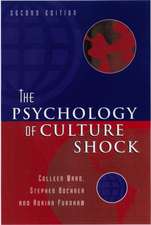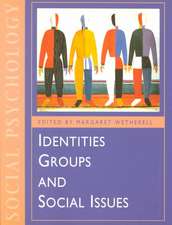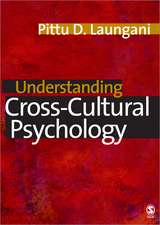Knowledge and Development: Volume 1 Advances in Research and Theory
Editat de Willis Overtonen Limba Engleză Paperback – 19 mar 2012
Preț: 386.39 lei
Nou
Puncte Express: 580
Preț estimativ în valută:
73.94€ • 76.76$ • 61.66£
73.94€ • 76.76$ • 61.66£
Carte tipărită la comandă
Livrare economică 24 martie-07 aprilie
Preluare comenzi: 021 569.72.76
Specificații
ISBN-13: 9781468425499
ISBN-10: 1468425498
Pagini: 280
Ilustrații: XVIII, 258 p.
Dimensiuni: 152 x 229 x 15 mm
Greutate: 0.38 kg
Ediția:Softcover reprint of the original 1st ed. 1977
Editura: Springer Us
Colecția Springer
Locul publicării:New York, NY, United States
ISBN-10: 1468425498
Pagini: 280
Ilustrații: XVIII, 258 p.
Dimensiuni: 152 x 229 x 15 mm
Greutate: 0.38 kg
Ediția:Softcover reprint of the original 1st ed. 1977
Editura: Springer Us
Colecția Springer
Locul publicării:New York, NY, United States
Public țintă
ResearchCuprins
1 Chance and Dialectic in Biological Epistemology: A Critical Analysis of Jacques Monod’s Theses.- 1. Discriminative Properties.- 2. A Hereditary Linguistic Nucleus?.- 3. A Cybernetic Perspective.- 4. An Active Choice.- 5. The Role of Chance.- 6. An Ordered Series.- 7. The Role of the Environment.- 8. The Sources of Knowledge.- 9. Logical-Mathematical Experience.- 10. Phenocopies.- 11. The Problems of Innateness.- 12. A Negation of Constructivism.- 13. Monod and Meyerson.- 14. The Dialectic of Nature.- 15. Death Is Not the Inverse of Life.- 16. An Ordered System of the Whole?.- 17. Compensatory Regulations.- References.- 2 The Role of Action in the Development of Thinking.- 1. The Figurative and Operative Aspects of the Cognitive Functions.- 2. Action and the Operations of Thought.- References.- 3 The Development of the Concepts of Chance and Probability in Children.- 1. Introduction.- 2. The Intuition of an Increasing Mixture in a Collection of Discrete Elements.- 3. The Notion of a Random Distribution and of the Experimental Method.- 4. Chance and Miracle in the Game of “Heads or Tails”.- 5. Random Selection of Pairs.- 6. The Quantification of Probabilities.- 7. The Concept of Random Situations in Psychotic Children.- 8. Conclusions.- 4 Review of Piagetian Infancy Research: Object Concept Development.- 1. Introduction.- 2. Introduction to Research on Object Concepts.- 3. Studies of Infants under Six Months of Age.- 4. Studies of Later Infancy.- 5. Other Developments.- 6. Conclusion.- References.- 5 Social Cognition: A Selective Review of Current Research.- 1. Introduction.- 2. Person Perception.- 3. Role Taking, Social Decentering, and Egocentricity.- 4. Empathic Understanding.- 5. Conclusion.- References.- 6 Memory from a Cognitive-Developmental Perspective: ATheoretical and Empirical Review.- 1. Overview.- 2. The Operative Approach to Memory: Theory and Research.- 3. An Empirical and Methodological Review.- 4. Loci of Operative Effects on Memory.- 5. The Operative Approach in the Context of Other Mnemonic Theories.- 6. Conclusions.- References.- 7 Logical Concept Attainment during the Aging Years: Issues in the Neo-Piagetian Research Literature.- 1. Introduction.- 2. Investigations of Piagetian Concept Performances during the Aging Years.- 3. Discussion.- 4. Conclusions.- References.
















